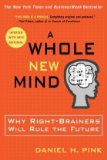A guy I know once said: “If you follow the herd, you’ll end up as lunch.” (Actually, he said “Schnitzel”, since he’s German, but you get the idea).
Well, here’s a guide, a manual if you wish, for avoiding the fate of leading a dull, boring and unremarkable life. This is not just a self-help or success guide type of book, it’s much more. It’s a manifesto for personal freedom that can apply to all of us, if we choose to follow it.
In some ways, it’s like the red pill/blue pill thing from The Matrix: Do you want to stay in the normal world, do normal, boring things like getting a job, applying for a mortgage, going on vacation once or twice a year, and feeding the ducks in the park after you retire?
Or do you want to decide for yourself what to do with your life, create your own rules and live your life the way you want?








